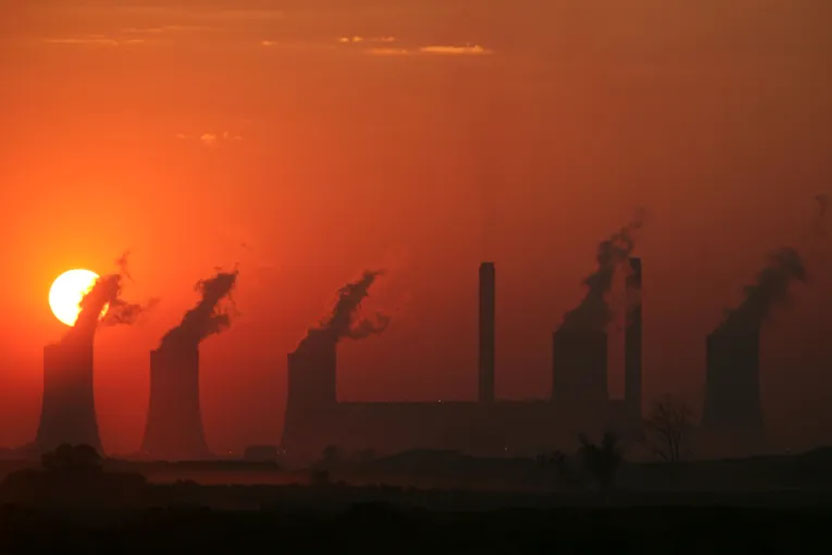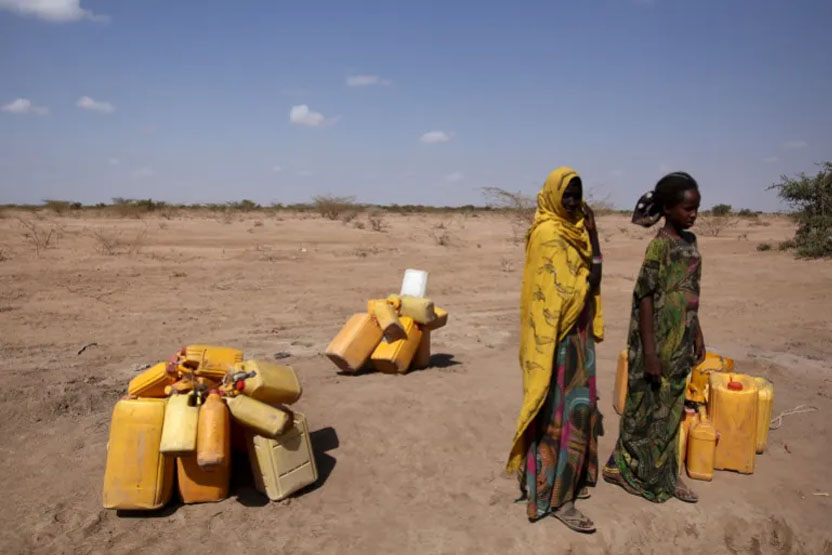
According to several agencies, between May 2024 and May 2025, fourteen of the sixty-seven extreme heat events recorded worldwide affected African countries.
A global study on extreme temperatures reveals that during this period, nearly half of the world’s population (49%, or 4 billion people) experienced 30 additional days of heat higher than 90% of the days in the 1991–2020 period — a phenomenon particularly pronounced in Africa.
The study, conducted with the participation of several international climate-focused organizations, shows that climate change has also doubled the number of heatwaves globally: at least 67 intense heat episodes have been influenced by global warming.
Indeed, climate change is driving an increase in extreme weather events, intensifying heatwaves, floods, and droughts, and worsening their impacts.
Heatwaves are often called “silent killers”: they cause serious harm without the dramatic images associated with storms or floods. They can lead to dehydration, heatstroke, and death, especially among vulnerable populations such as the elderly, children, and people with chronic illnesses.
The study focused on an exceptional heatwave that struck the Sahel region — a semi-arid area of West and north-central Africa — with temperatures exceeding 45 °C. In Mali, peaks close to 50 °C were recorded. Researchers found that this heatwave was 1.5 °C hotter and ten times more likely due to climate change. A 1.5 °C difference may seem small, but it marks a critical threshold between life and death for the most vulnerable populations.
The authors of the study used a method known as climate attribution and climate models to estimate how much of the additional heat could be blamed on climate change. This system, called the Climate Shift Index, calculates the number of extreme heat days that would have occurred without human impact on the climate and compares them to what was actually observed.
This approach allowed researchers to estimate the number of additional extreme heat days due to climate change in 2024 and to forecast a rise in the frequency and intensity of heatwaves if major polluting companies continue burning fossil fuels on a large scale.
To measure the impact of climate change on 2024 temperatures, researchers defined “unusual heat” as the top 10% hottest days from the 1991–2020 period. Then, between May 1, 2024, and May 1, 2025, they counted how many days exceeded this threshold and estimated how many of those days were linked to global warming.
Heatwaves and droughts are worsening economic and social crises
A stark warning for Africa
According to the study, several African countries experienced more than 90 days of extreme heat: Burundi, the Comoros, the Republic of the Congo, Equatorial Guinea, Gabon, Ghana, Liberia, Mayotte, Rwanda, and São Tomé and Príncipe. In these countries, extreme temperatures lasted at least three consecutive months, sometimes more than four.
Fourteen of the 67 recorded global heatwaves struck Africa. These events caused significant human and material damage, including the destruction of crops and structural damage to buildings. In total, 42 of the continent’s 54 countries were affected.
The period from December 14 to 30, 2024, saw the heatwave most strongly influenced by climate change, with its likelihood of occurrence multiplied by at least fifteen due to global warming. The hardest-hit areas were located in West and Central Africa.
In Southern Africa, four severe heatwaves were recorded in 2024, including two that lasted five days. Their likelihood of occurrence due to climate change was multiplied by nine. North Africa also experienced several intense heatwaves.
This finding highlights the severity of rising temperatures in Africa. Each increase, even minor, in global warming exposes more populations to health- and life-threatening temperatures.
It is now clear that climate change is making living conditions in Africa significantly more difficult. As long as the climate continues to warm, Africa will face increasingly intense heatwaves. Adaptation measures alone will not be enough to protect communities from growing risks.
The study recommends releasing financial support to help the most affected African countries adapt to extreme heatwaves. But above all, to avoid long-term worsening, the only real solution is to stop — as quickly as possible — the use of fossil fuels responsible for heating the planet.



Comment